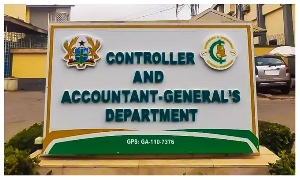Wa, Jan. 26, GNA- The Wa Regional Technology Transfer Centre (RTTC) since 2000 has trained a total of 460 men and women in batik tie and dye, cloth making, bee-keeping, food processing, soap, powder and pomade making.
Some 69 men and women have also been trained in textiles production under the Ministry of Manpower Development and Employment's Skills Training and Employment Programme (STEP).
Mr P.A. Adasi, Regional Manager of RTTC announced this during the graduation ceremony of 17 ladies in batik tie and dye and 10 women in weaving.
It costs about 8.6 million cedis to train a technical apprentice per year while it costs every textile trainee 2.3 million cedis for the same period.
He commended the European Union (EU) and the Canadian International Development Agency (CIDA) for sponsoring those courses to enable more people to be trained.
Mr Adasi said the establishment of RTTC's in all the regional capitals had helped in reducing the high rate of rural-urban drift since most of the unemployment youth could now be on their own. The Regional Manager said the aim of GRATIS Foundation is to transform Ghana into a middle-income country.
In a speech read for him, Mr Sahanun Mogtari, Upper West Regional Minister urged the trainees to organise themselves into groups to access the youth fund to expand their business.
He warned that the youth is not free and that all beneficiaries would be made to pay back to enable others get access to it. Mr Mogtari expressed the hope that unemployment would be reduced from 39 percent to 32 percent by 2005 nationwide.
He said the government's afforestation programme was not only meant to reclaim depleted forests but to create employment avenues for the unemployed youth.
"In the Upper West Region, plans are far advanced to restore 200 hectares of degraded forest reserves and to create employment for people," he said.
The Regional Minister said another 150 hectares of land would be established into community farm plantations, to be owned by individuals with support and assistance from governments.
Regional News of Monday, 26 January 2004
Source: GNA












